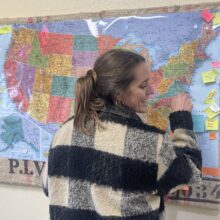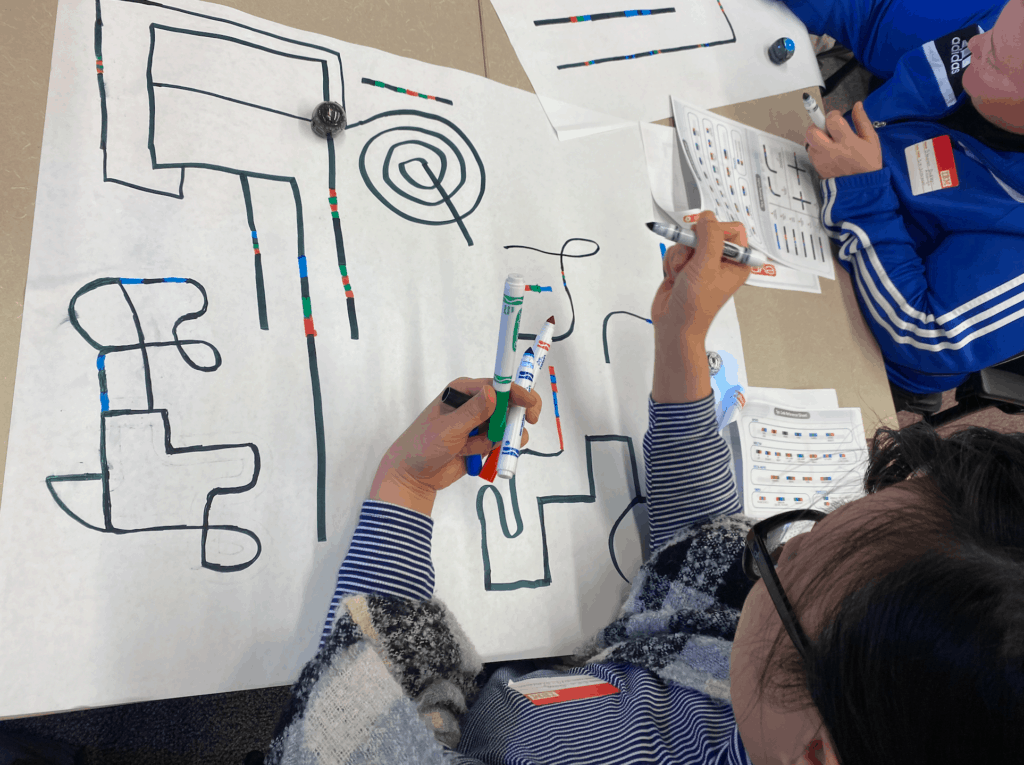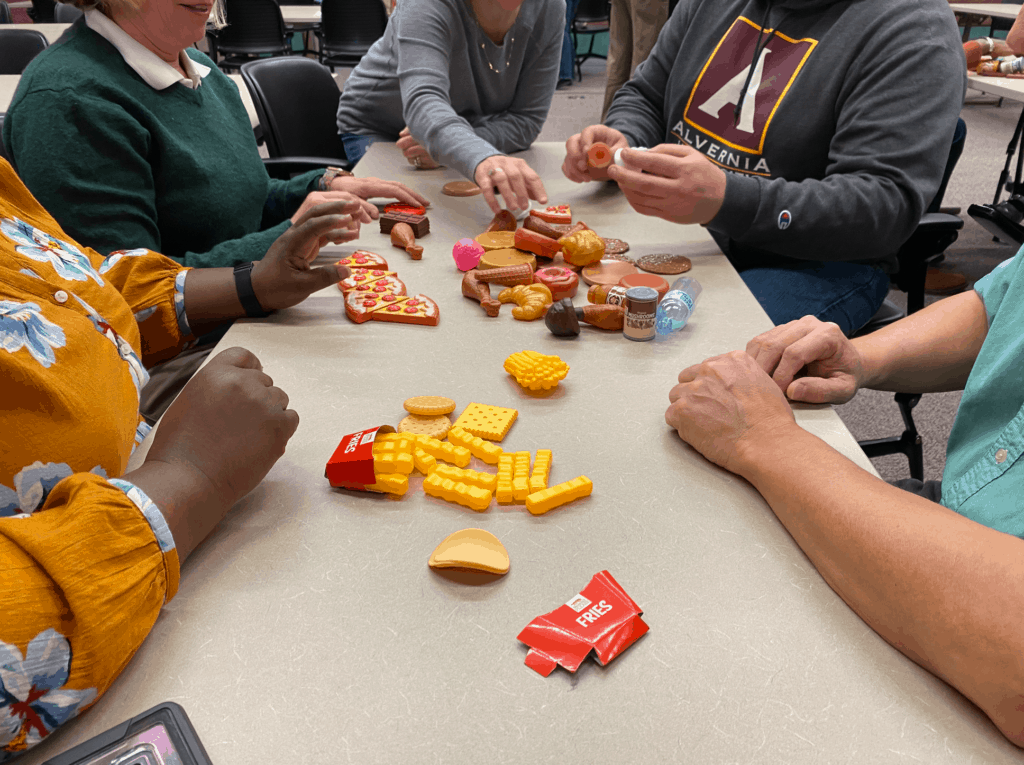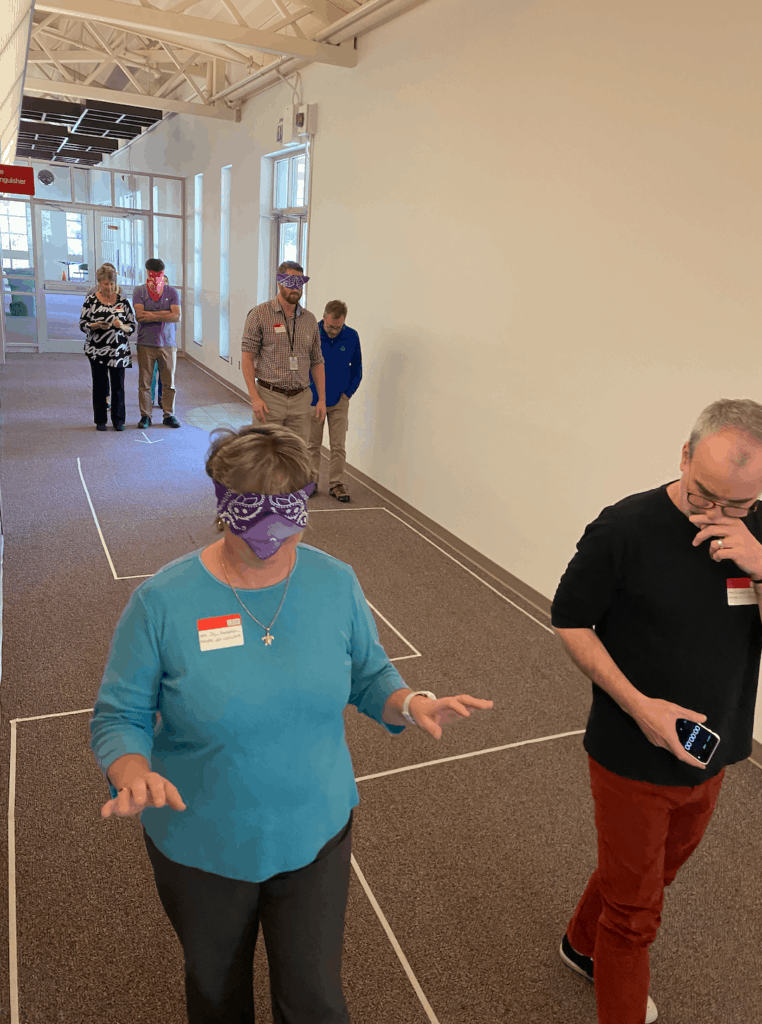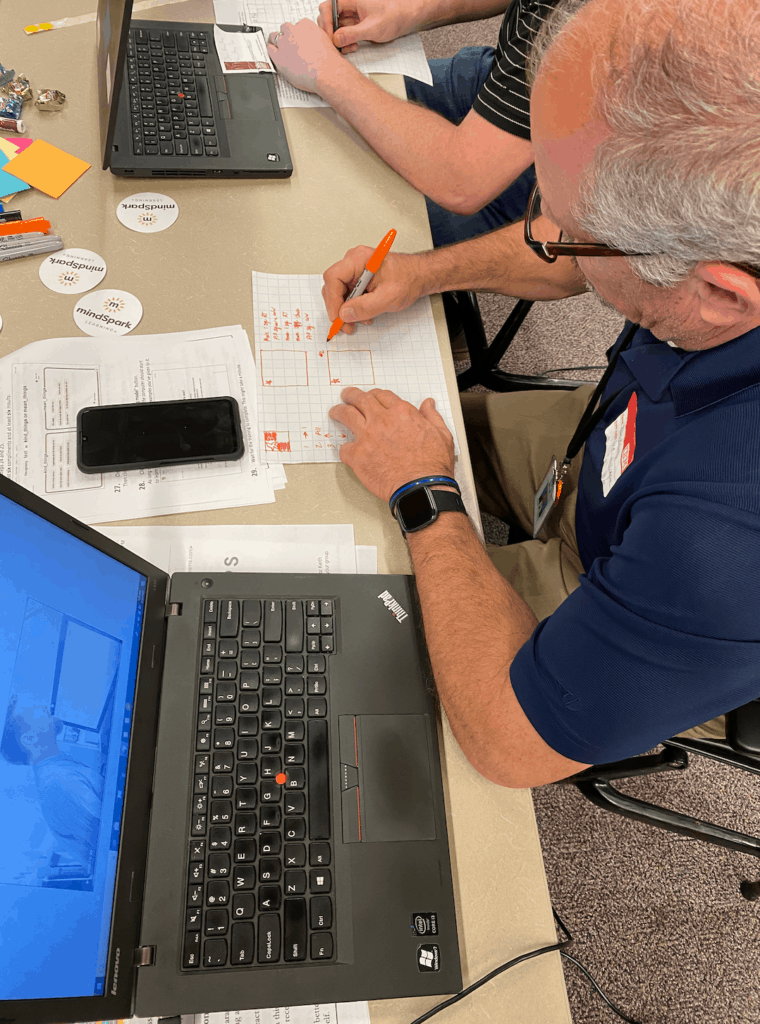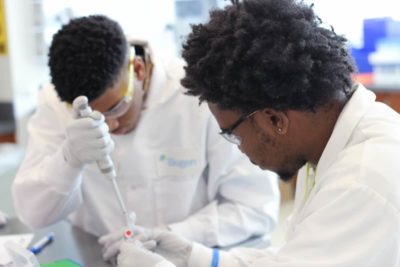What is the half-life of knowledge? Samuel Arbesman argues that facts change over time, and that half of what we know now may be overturned or made obsolete in the future.
“The half-life of professional skills was once estimated at 10 to 15 years, meaning that the value of those skills would decline by half — or half the knowledge associated with the skills would become irrelevant — in a decade or so. Today, the half-life of a learned skill is estimated to be five years.”
What does that mean for industry? In IBM’s case, it means they become proactive in getting educators comfortable with teaching artificial intelligence in the classroom.

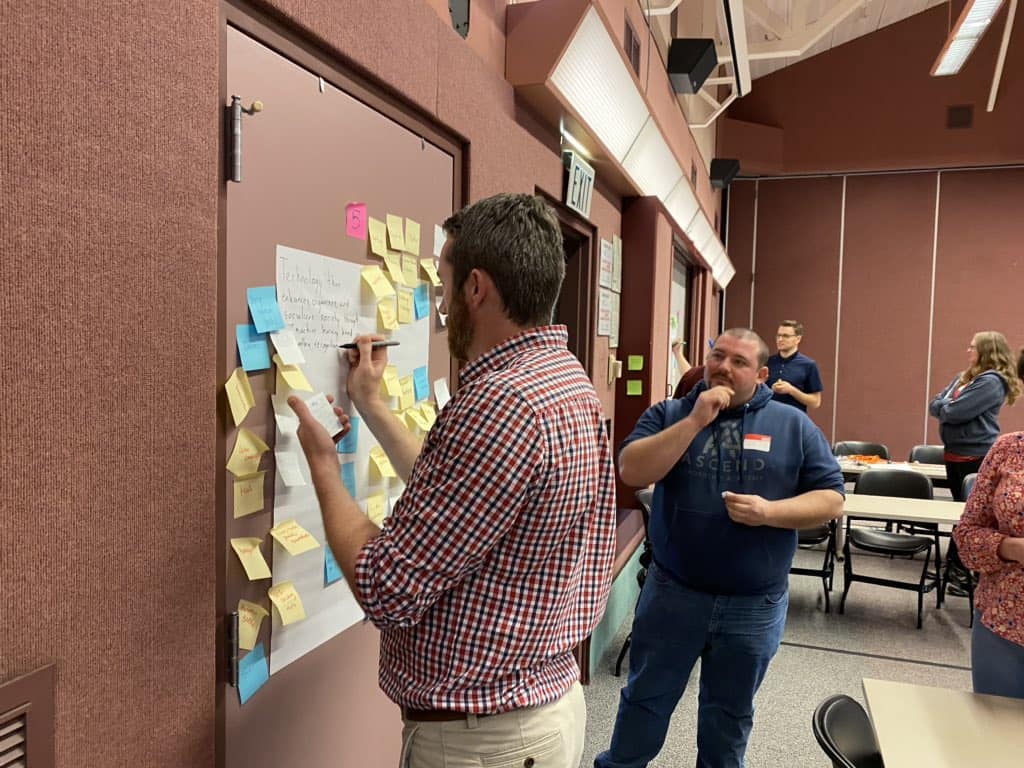
What is AI? Caroline Parker/EducationNC 
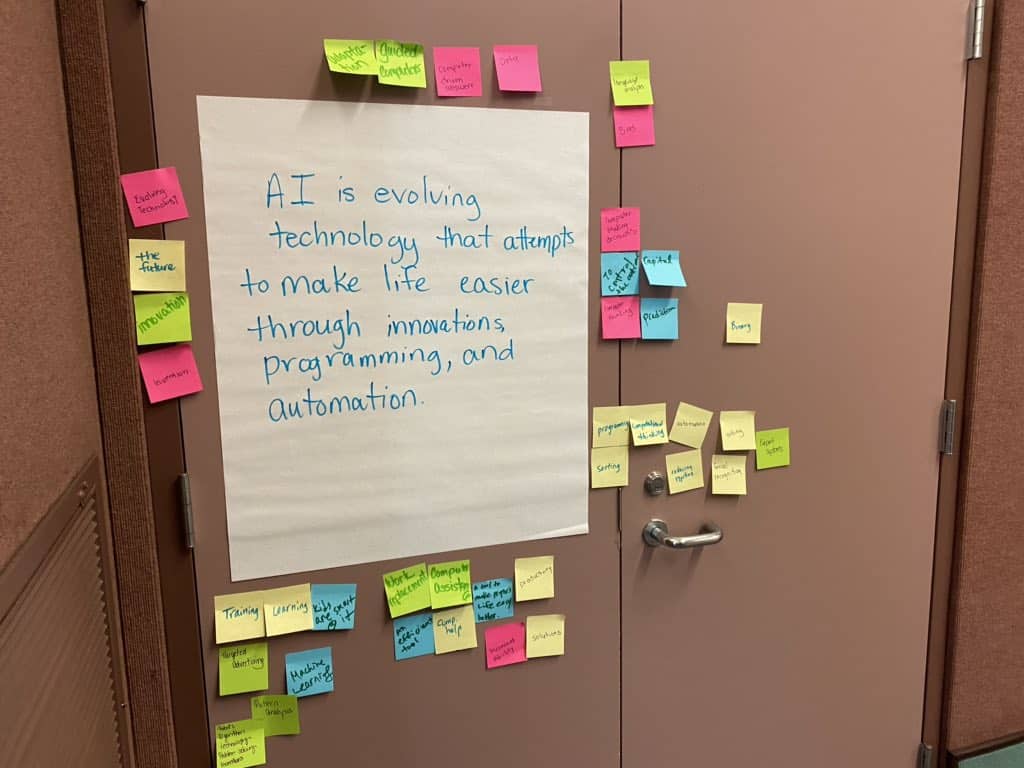
AI is evolving technology. Caroline Parker/EducationNC
On March 9 and 10, 33 educators from North Carolina and Virginia gathered in Research Triangle Park for an artificial intelligence institute powered by mindSpark Learning and IBM. MindSpark Learning is a national nonprofit working to leverage industries to support educators and students so they can cultivate essential skills, and in turn, create dynamic talent for the workforce pipeline.
Steve Pearson, corporate social responsibility leader with IBM, says the company partnered with mindSpark Learning because IBM knows the technology industry and they wanted to figure out a way to get what they know into the hands of teachers. There is also an online institute component for educators who could not attend the gathering in person.
“At this two-day institute, we’re really explaining to them, through interactive learning and engagement with fellow educators, what artificial intelligence is and how they can think about applying the concept into teaching at every level. So whether it’s kindergarten all the way through 12th grade, there are opportunities for them to think differently to prepare students for an innovation economy,” said Pearson.
These lessons on interactive learning were categorized in two ways: plugged, where participants engaged with technology, and unplugged, where they completed hands-on activities. MindSpark’s lesson plans and activities made all attendees get up, move, and flex their creative muscles, all while covering key terminology.
IBM professionals were brought in to talk with educators and ask questions about the future of industry and how things could be implemented in classrooms. Phaedra Boinodiris is on the IBM Academy of Technology leadership team, and after talking one-on-one with educators, she returned the following day to speak about artificial intelligence and ethics.
The institute ended with mindSpark Learning helping educators organize and create ways that these lessons could be used immediately in the classroom. The organization is made up of educators and past educators, says Kiki Huckaby, senior director of innovative practices, so they know how things play out in school.
“We kind of know the constraints of the education system and how to best fit things into curriculum and into content and get students engaged in a really authentic way,” she explained.
“Our goal is to empower educators because curriculum, standards, things are always changing in education. But … educators are really the solution to a lot of the issues that we face in education. And so we want to empower them to be able to tackle those solutions and give them the tools that they need in order to feel successful in their job and prepare students for the workforce.”

